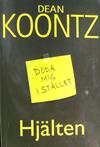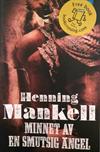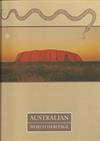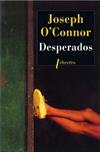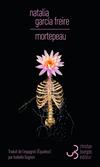
Obscene in the Extreme: The Burning and Banning of John Steinbeck's the Grapes of Wrath
1 journaler for this copy...
8 stars: Very good
--------------------
From the back cover: Few books have caused as big a stir as John Steinbeck's 'Grapes of Wrath'. A month after it was published in April 1939, it stood as the nation's #1 best seller. And by summer in Kern County, California, the Joads' newfound home, the book was burned publicly and banned from local schools and library shelves. Obscene in the Extreme tells the remarkable story behind this fit of censorship.
When agribusiness titan Bill Camp presides over the books' torching in downtown Bakersfield, he declares "We are angry not because we were attacked, but because we were attacked by a book obscene in the extreme sense of the word." Yet [librarian Gretchen] Knief bravely fights back: "If that book is banned today, what will be banned tomorrow?"
The backlash to the publication of GoW --a book praised by FDR and ER and seared into the public's consciousness by the lyrics of Woodie Guthrie and the on screen performance of Henry Fonda--serves as a window into an extraordinary time of upheaval in America. It was a time when, as Steinbeck put it, there seemed to be a revolution going on.
Rick Wartzman beautifully and meticulously brings to life this moment in history, when Nazis were burning books in Europe and Americans were questioning whether capitalism itself was worth preserving. Those who found strength in Steinbeck's work believed, as he did, that California's farming giants were mistreating their migrant laborers. Those who condemned the book believed that society was in danger of disintegrating, thanks to troublemakers like Steinbeck. Obscene in the Extreme highlights just how volatile the world was in 1939, how central California was a tinderbox, and the GoW a match.
-----------------------
"A book is somehow sacred. A dictator can kill and maim people, can sink to any kind of tyranny and only be hated, but when books are burned, the ultimate in tyranny has happened. This we cannot forgive." -- John Steinbeck, from the inside cover.
The thing that worries me is that "it could happen here". If that book is banned today, what will be banned tomorrow? And what group will want a book banned the day after that? It's such a vicious and dangerous thing to begin and may in the end lead to exactly the same thing we see in Europe today-- Gretchen Knief, librarian.
Miller went on to report the actual number of objections to the novel... The grand total--zero--made Abel look like a fibber or a fool. Meanwhile, she couldn't resist toying with her interview subject just a bit more. "Mr Abel, do you think that the Board of Supervisors should act as censors of the books in the county library?" "I certainly do think so, when the books are filthy." "Mr. Abel, are you aware that there are a number of books in the county library written by young American authors, Steinbeck's contemporaries, that might be considered just as obscene as The Grapes of Wrath?" Abel paused, obviously thrown off stride. "II was not aware of it. I'll have to speak to Miss Knief about it. Yes sir, I'll certainly have to speak to Miss Knief."
One day when he was out irrigating, Clell saw a wagon rolling down the highway. From a distance, it looked a little like one of the horse drawn plows he had guided in Missouri. But as it got closer, he saw that it wasn't a horse in the lead. IT was a man hooked up to some kind of harnass, lumbering along, pulling a buggy with his wife and baby on top. "It was the saddest thing I'd ever seen" Clell said.
[Banning books] is driven primarily by one thing: fear. Fear that a wildly popular novel had shined a light on an inherently iniquitous system. Fear that society might rise up as a result. Fear by a fortunate few that the world they sat atop might soon come unglued.
Raymond Henderson, blind lawyer from the ACLU, dove right in, protesting the banning of the novel on the grounds that a library should be an open instituion, not a partisan repository. "We are not concerned with whether GoW is a good or a bad book. But we are concerned with whether a public board can set itself up as a board of censors to decide what the people shall or shall not read. If this sort of thing should be allowed to continue, the Republicans could ban a book written by a Democrat, and Democrats could bar a book by a Republican."
Henderson proceeded to read aloud a section about incest between a man and his daughters. That, he said, "is from another book. It is in our library. Would you like to ban it?" Abel, usually not one at a loss for words, remained quiet. "That passage I just quoted", Henderson said, "is from the Old Testament, Mr. Abel"--the story of Lot in the Book of Genesis.
"These supervisors are not shocked by the language in Steinbeck's book," said Weltha Smithson, a 54 yo grandmother and member of the Workers' Alliance, "They've heard it all their lives. They just don't want the true conditions exposed. Sure, we have had to crowd whole families into one small tent. We didn't want to live that way. We had to. The migrants are proud of John STeinbeck's book. And if the migrants want to cuss, I think they've got a right to cuss. How well we know those words-- 'Starvation wages'".
Mature adults should not need to be shielded against so called 'objectionable' books -- county library manual
What STeinbeck had contested, and would always contest, was any repression of a person's spirit, be it at the hands of the Associated Farmers or Stalin's secret police. "I believe in and will fight for the right of the individual to function as an individual without pressure from any direction" he wrote in 1954.
--------------------
From the back cover: Few books have caused as big a stir as John Steinbeck's 'Grapes of Wrath'. A month after it was published in April 1939, it stood as the nation's #1 best seller. And by summer in Kern County, California, the Joads' newfound home, the book was burned publicly and banned from local schools and library shelves. Obscene in the Extreme tells the remarkable story behind this fit of censorship.
When agribusiness titan Bill Camp presides over the books' torching in downtown Bakersfield, he declares "We are angry not because we were attacked, but because we were attacked by a book obscene in the extreme sense of the word." Yet [librarian Gretchen] Knief bravely fights back: "If that book is banned today, what will be banned tomorrow?"
The backlash to the publication of GoW --a book praised by FDR and ER and seared into the public's consciousness by the lyrics of Woodie Guthrie and the on screen performance of Henry Fonda--serves as a window into an extraordinary time of upheaval in America. It was a time when, as Steinbeck put it, there seemed to be a revolution going on.
Rick Wartzman beautifully and meticulously brings to life this moment in history, when Nazis were burning books in Europe and Americans were questioning whether capitalism itself was worth preserving. Those who found strength in Steinbeck's work believed, as he did, that California's farming giants were mistreating their migrant laborers. Those who condemned the book believed that society was in danger of disintegrating, thanks to troublemakers like Steinbeck. Obscene in the Extreme highlights just how volatile the world was in 1939, how central California was a tinderbox, and the GoW a match.
-----------------------
"A book is somehow sacred. A dictator can kill and maim people, can sink to any kind of tyranny and only be hated, but when books are burned, the ultimate in tyranny has happened. This we cannot forgive." -- John Steinbeck, from the inside cover.
The thing that worries me is that "it could happen here". If that book is banned today, what will be banned tomorrow? And what group will want a book banned the day after that? It's such a vicious and dangerous thing to begin and may in the end lead to exactly the same thing we see in Europe today-- Gretchen Knief, librarian.
Miller went on to report the actual number of objections to the novel... The grand total--zero--made Abel look like a fibber or a fool. Meanwhile, she couldn't resist toying with her interview subject just a bit more. "Mr Abel, do you think that the Board of Supervisors should act as censors of the books in the county library?" "I certainly do think so, when the books are filthy." "Mr. Abel, are you aware that there are a number of books in the county library written by young American authors, Steinbeck's contemporaries, that might be considered just as obscene as The Grapes of Wrath?" Abel paused, obviously thrown off stride. "II was not aware of it. I'll have to speak to Miss Knief about it. Yes sir, I'll certainly have to speak to Miss Knief."
One day when he was out irrigating, Clell saw a wagon rolling down the highway. From a distance, it looked a little like one of the horse drawn plows he had guided in Missouri. But as it got closer, he saw that it wasn't a horse in the lead. IT was a man hooked up to some kind of harnass, lumbering along, pulling a buggy with his wife and baby on top. "It was the saddest thing I'd ever seen" Clell said.
[Banning books] is driven primarily by one thing: fear. Fear that a wildly popular novel had shined a light on an inherently iniquitous system. Fear that society might rise up as a result. Fear by a fortunate few that the world they sat atop might soon come unglued.
Raymond Henderson, blind lawyer from the ACLU, dove right in, protesting the banning of the novel on the grounds that a library should be an open instituion, not a partisan repository. "We are not concerned with whether GoW is a good or a bad book. But we are concerned with whether a public board can set itself up as a board of censors to decide what the people shall or shall not read. If this sort of thing should be allowed to continue, the Republicans could ban a book written by a Democrat, and Democrats could bar a book by a Republican."
Henderson proceeded to read aloud a section about incest between a man and his daughters. That, he said, "is from another book. It is in our library. Would you like to ban it?" Abel, usually not one at a loss for words, remained quiet. "That passage I just quoted", Henderson said, "is from the Old Testament, Mr. Abel"--the story of Lot in the Book of Genesis.
"These supervisors are not shocked by the language in Steinbeck's book," said Weltha Smithson, a 54 yo grandmother and member of the Workers' Alliance, "They've heard it all their lives. They just don't want the true conditions exposed. Sure, we have had to crowd whole families into one small tent. We didn't want to live that way. We had to. The migrants are proud of John STeinbeck's book. And if the migrants want to cuss, I think they've got a right to cuss. How well we know those words-- 'Starvation wages'".
Mature adults should not need to be shielded against so called 'objectionable' books -- county library manual
What STeinbeck had contested, and would always contest, was any repression of a person's spirit, be it at the hands of the Associated Farmers or Stalin's secret police. "I believe in and will fight for the right of the individual to function as an individual without pressure from any direction" he wrote in 1954.
